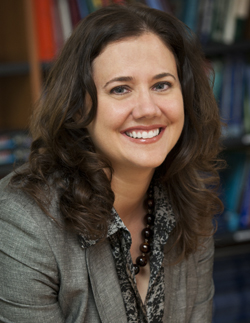Expert:
Dr. Adrienne Kovacs
Role at UHN:
Clinical Psychologist, Adult Congenital Heart Program, PMCC
 Dr. Kovacs is the only full-time psychologist working with adult congenital heart disease (ACHD) patients in North America. She combines clinical work with ground-breaking research, and a major area she has focused on recently is end-of-life issues in patients with complex ACHD.
Dr. Kovacs is the only full-time psychologist working with adult congenital heart disease (ACHD) patients in North America. She combines clinical work with ground-breaking research, and a major area she has focused on recently is end-of-life issues in patients with complex ACHD.
What is the number one piece of advice you give to your patients to empower them to improve their heart health?
My patients sometimes have difficulty coping when it seems like certain health matters are out of their control. So, I encourage patients to focus on aspects of their health within their control. Physical activity is a perfect example.
Health care providers as well as the general public tend to focus on the physical benefits of exercise, but I think the potential psychological benefits deserve equal attention. Studies have shown that physical activity can improve mood and reduce anxiety. A crucial difference between physical and psychological benefits of exercise is that in order to realize the psychological benefits of exercise, the duration or intensity is less important. What matters most is getting moving.
When I work with patients who are physically inactive, I encourage them to speak with their medical team about safe and appropriate levels of exercise. I often facilitate referrals to cardiac rehab and have witnessed the genuine psychological benefits of that program.
What is the one thing that you do to maintain your heart health?
While I don't always succeed, I do try to practice what I preach! I schedule exercise into my week.
In fact, when work becomes extra busy, as it does during grant-writing time, many individuals, including myself, tend for forget about healthy habits like eating and exercise, when actually this is the most important time to stay physically active. Personally, staying physically active during busy weeks is probably my most effective stress-management strategy.
»
Read advice from our other experts in our Heart Month spotlight series
